Pacific Northwest Discovery
Trip Summary
This is the perfect introductory adventure for middle schoolers embarking on their first foray into the outdoors, and it all takes place within the mystical, breathtakingly beautiful Olympic National Park. This adventure is jam-packed: We'll start with a day hike on one of Washington's most iconic trails, Hurricane Ridge. Then we'll head to the coast for a few days to hike along the Olympic Coast, where we'll almost certainly see wild and marine life like otters, bald eagles, sea lions, and more. After that, we'll trade our boots and backpacks for boats and paddles to sea kayak in the calm waters near Port Angeles and canoe along Lake Cushman. To cap off our trip, we'll hike through old-growth forests to the tippy-top of Mt. Ellinor.
Not only will you fall in love with all that the outdoors has to offer, but you'll also come home feeling incredibly accomplished and proud, with a newfound sense of confidence and independence and a big group of best new friends!
Itinerary
Day hike to Hurricane Ridge
We'll dive right Adventure Treks with a day hike to Hurricane Ridge, known for its stunning panoramic views. Get to know your new best friends while hiking through vibrant wildflowers like mountain lupine and Indian paintbrush with snow-capped Olympic peaks in the distance. This is one of the most iconic day hikes in all of the Pacific Northwest.
Overnight hike on the Olympic Peninsula
During these three days, you'll likely bald eagles, otters, sea lions, and seals while walking along boardwalks and sandy and pebbly beaches, next to soaring sea stacks in the Pacific ocean. Camp on the beautiful coast at night and eat dinner in front of the most colorful sunset you've ever seen. Big adventures abound on the Olympic coast! This overnight hiking trip is perfect for first-timers.
Sea kayak around Port Angeles
Glide through the calm waters of Port Angeles, known for vibrant marine life, like colorful sea stars and curious harbor seals, and views of the Olympics. Gaze east for gorgeous long-range views of Glacier Peak, Mount Baker, Mount Shuksan, and set your sights down south for a peek of Mount Olympus. On a clear day, you can might be able to see Mount Rainier!
Canoe on Lake Cushman
Lake Cushman is famous for its clear blue waters, surrounded by lush green forests and soaring Olympic peaks—like Mount Ellinor, which we'll climb next! For two days, we'll work on becoming master paddlers as we learn to navigate canoes on the lake. This place is perfect for an afternoon swim on a warm summer day!
Summit hike to Mount Ellinor
It's time to cap off our trip with a summit hike to Mount Ellinor, rising to almost 6,000 feet in elevation. Your well-earned reward at the top will include 360-degree views of Rainier and the Juan de Fuca. Keep your eyes peeled—you may see an elusive mountain goat near the summit!
6
7


